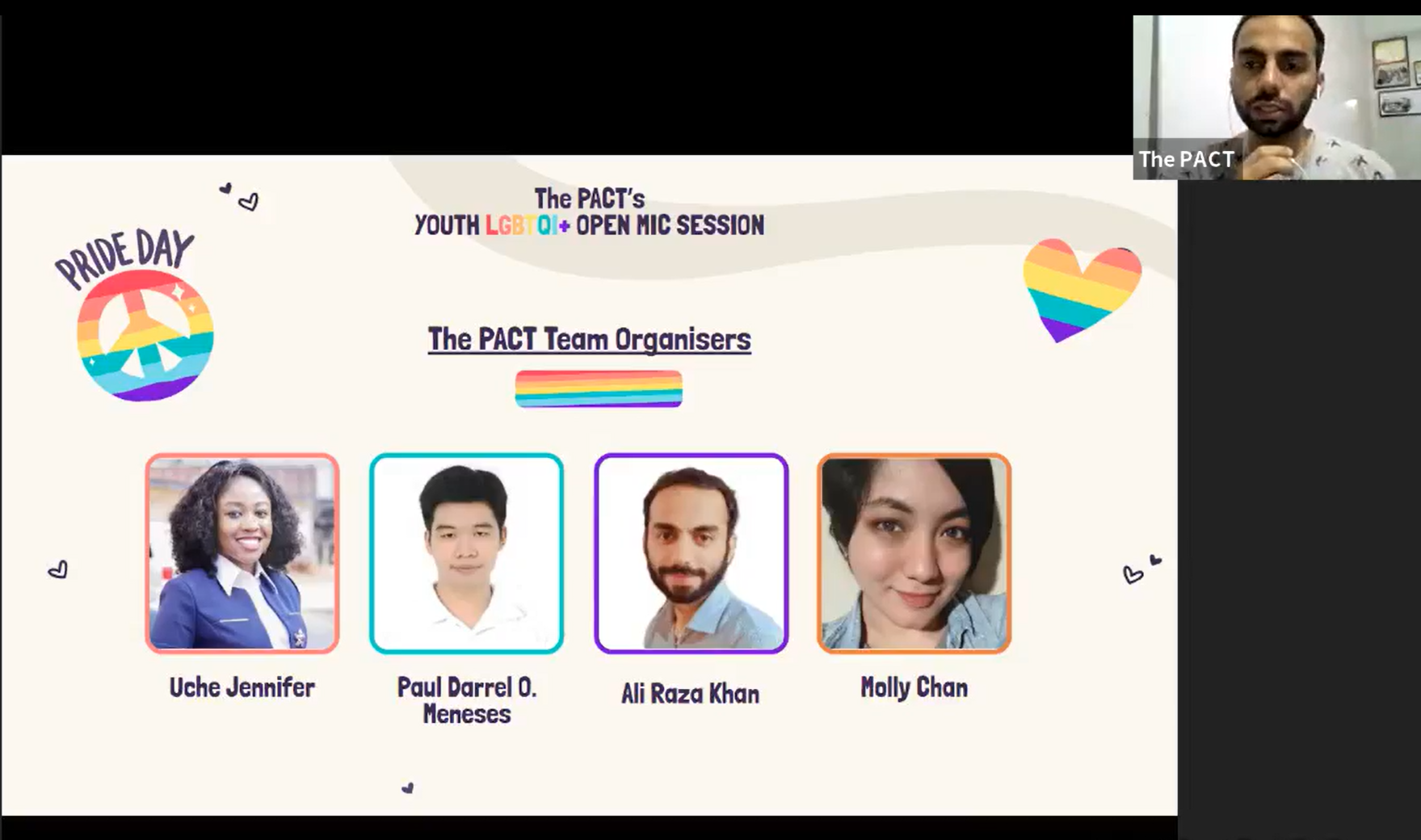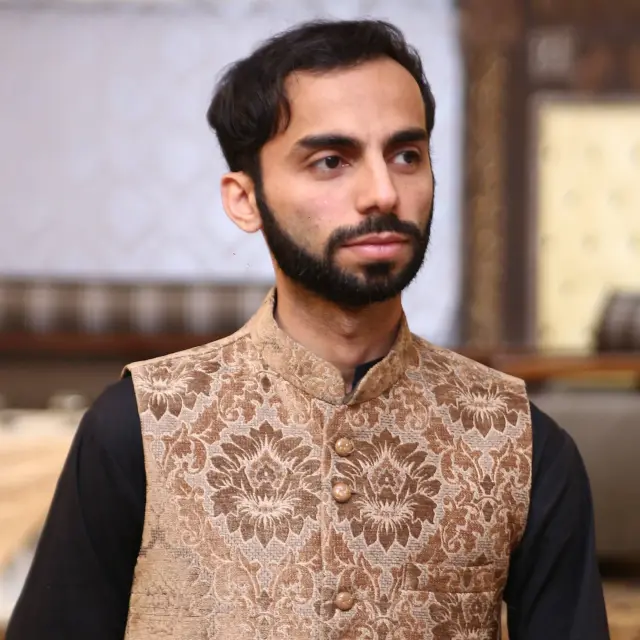Tag: The Youth PACT
-

Pride in the Post-Pandemic World: A Youth LGBTQI+ Open Mic Session by The Youth PACT Organisation
On June 18th, 2022, TheYouthPACT.org hosted an impactful “Youth LGBTQI+ Open Mic Session” titled “Pride in the Post-Pandemic World.” As a volunteer coordinator for the advocacy working group at TheYouthPACT.org, I, Ali Raza Khan from Pakistan, had the privilege of co-hosting this session alongside Paul Darrel Omenesis from the Philippines. The session commenced with an…

